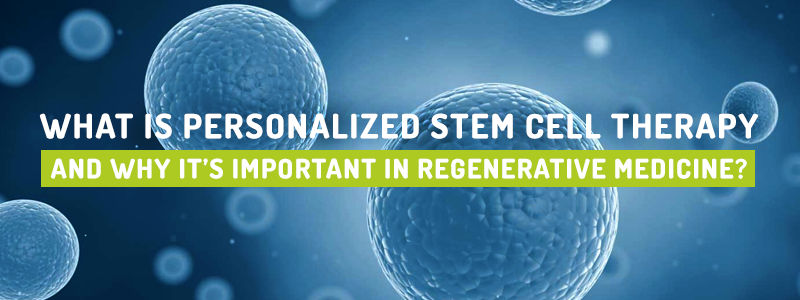What is Personalized Stem Cell Therapy and Why It’s Important in Regenerative Medicine

Let’s start with some basics first…
What is regenerative medicine?
Regenerative medicine is the field of medicine where biology, engineering and health sciences, amongst others meet and to develope the processes through research how the body can replace, repair, reprogram or renew it’s own organs, tissue or cells.
What is stem cell therapy?
Stem cells are blank cells that can become any cell in our body. We have stem cells for different purposes all over our body to regenerate tissue as we grow, like for example: skin. If we get a cut, stem cells will differentiate into skin cells that will go to work into repairing that cut. As we grow older, these stem cells stop working as effectively as they once did and this causes the body to need help to function properly.
There are two types of stem cells, and both are used for our protocol depending in the patient’s condition:
- Allogeneic stem cells: they come from another person (relative or a complete stranger) and the important thing is that the donor's immune system markers are closely matched to yours.
- Autologous stem cells: They come from your own blood or bone marrow.
What is personalized stem cell therapy?
Personalized stem cell therapy means that the treatment that a patient will be receiving will be adapted specifically to him, depending on variables that makes their case unique such as condition, general health, nutrition, age, lifestyle, amongst others. Meaning that although there could be two patients with the same condition, that doesn’t mean that they should receive the same medical protocol.
Why are variables important to consider for stem cell therapy?
Let’s take nutrition for example. Nutrition is an essential part in any therapy of regenerative medicine, especially in stem cell therapy, since the cells require certain nutrients to be strengthened and able to perform the functions for which they are intended. Nutrition focused on therapy, considers each patient's disease to find the necessary nutrients to support for each specific situation, maintain cell health, obtain the necessary energy to function and maintain its structure in optimal conditions, using food and supplements to complement. The difference of adequate general nutrition is that it focuses on maintaining an adequate balance in quantity of each nutrient for proper cellular functioning, that there is no excess in any of them or a harmful interaction that can create an imbalance in cellular behavior damaging their ability to absorb and use them.
So variables that make your case unique are worth taking a proper medical examination to correctly attend you and your condition with stem cell therapy.
Personalized stem cell therapy is important in the regenerative medicine field because as previously mentioned regenerative medicine is all about the reconstruction of your own tissue and cells, and as your body is going to do all the work with the help of stem cells a personalized therapy will attend the singularities of your condition and health.
The effectiveness of this therapy only can be possible by the manipulation of stem cells to attend the damaged areas. This is not a legal procedure in the US and Canada as it only has been approved to use stem cells in a kinda “in and out” procedure where the medical staff takes out the patient’s stem cells and insert them right back into the body without checking if the number of stem cells is enough for the diseases being treated and without making sure the stem cells are functional.
Luckily, as medicine is a worldwide science many countries recognize the impact stem cells can make in their health system, so some innovative procedures such as personalized stem cell therapy are approved and regulated.
We encourage you to do your research about stem cell therapy and make sure you are getting the therapy you need.
 US Landline
US Landline
